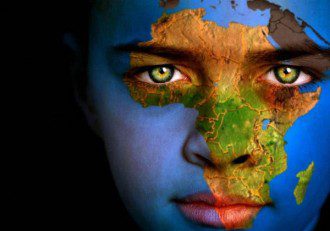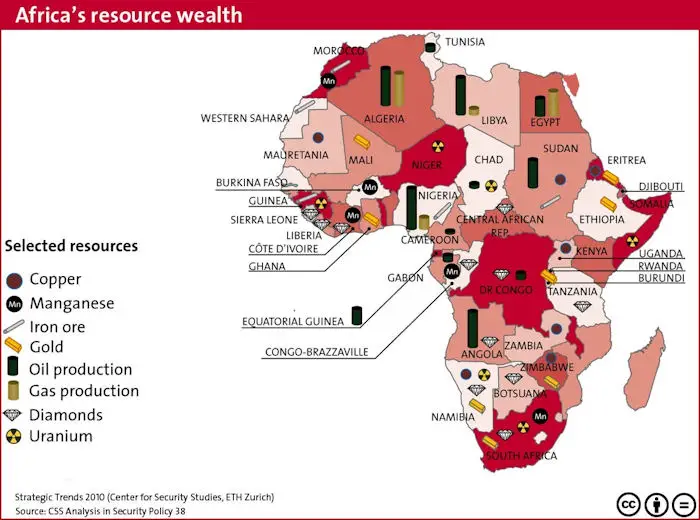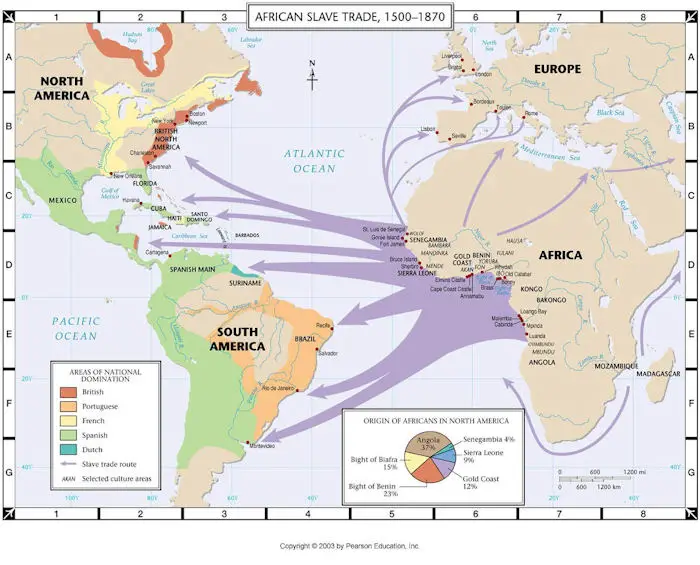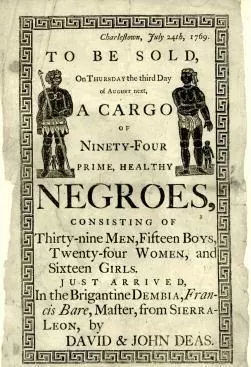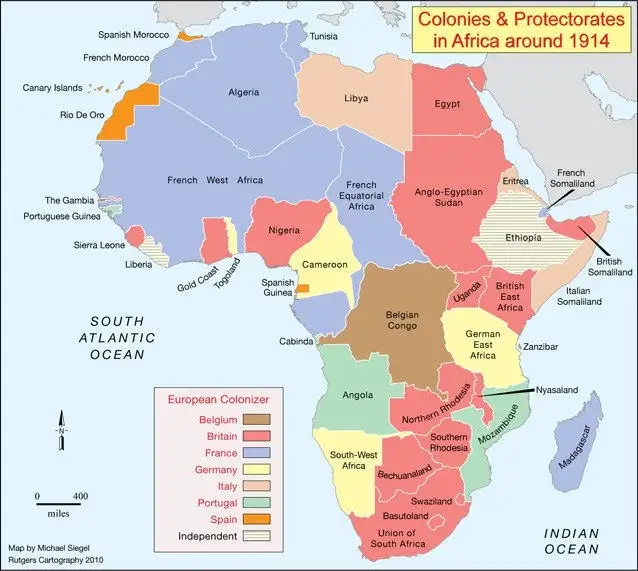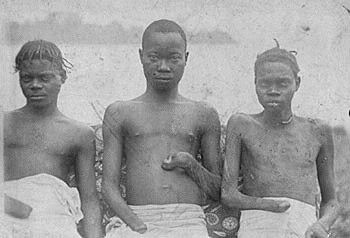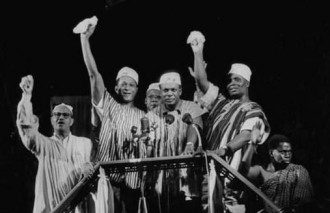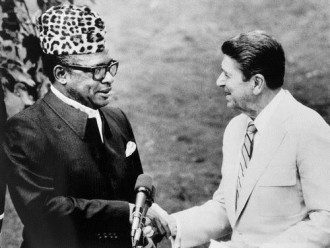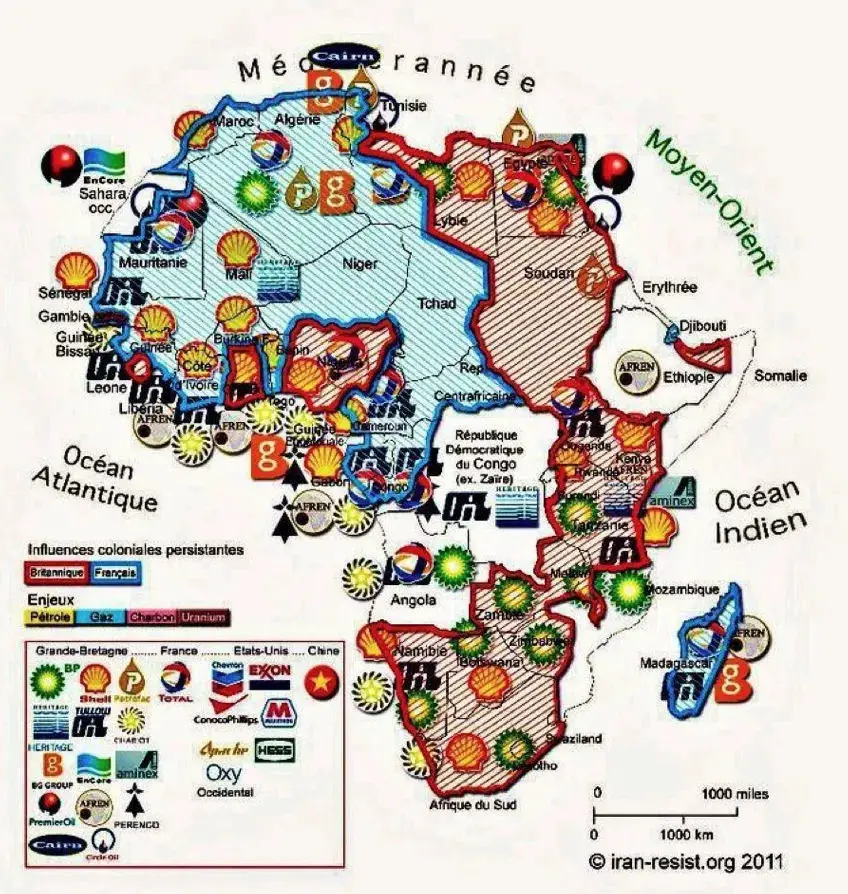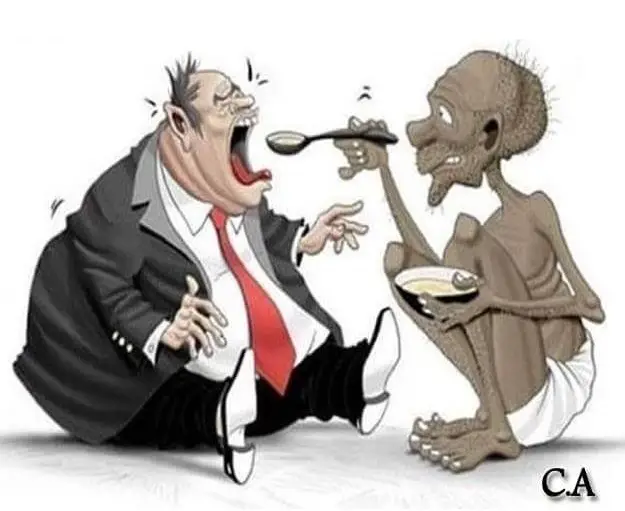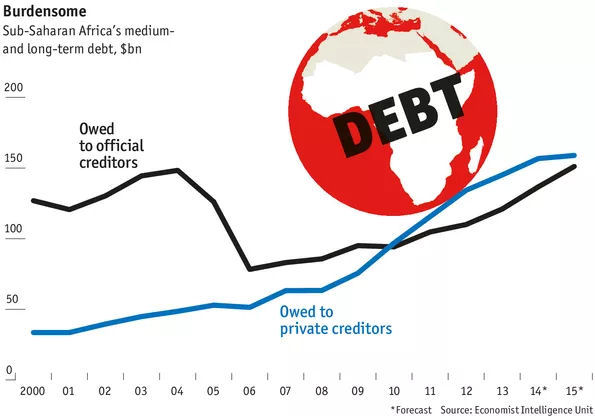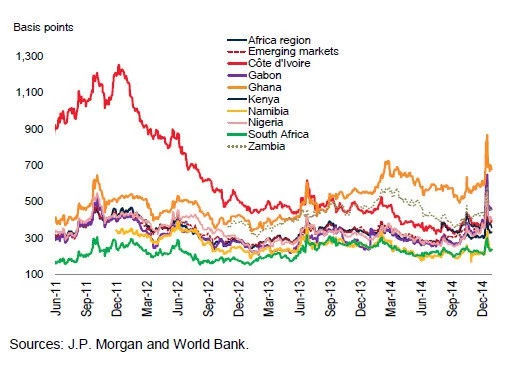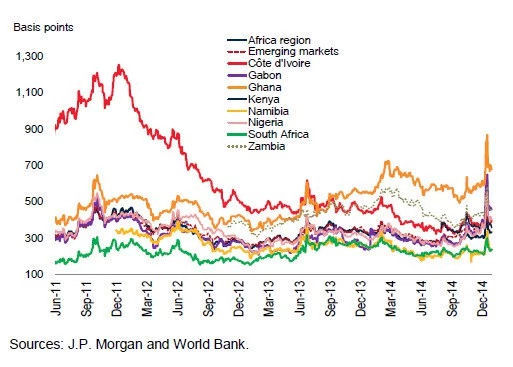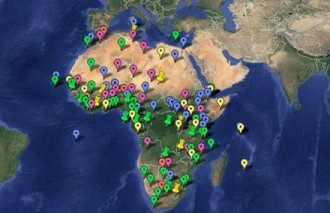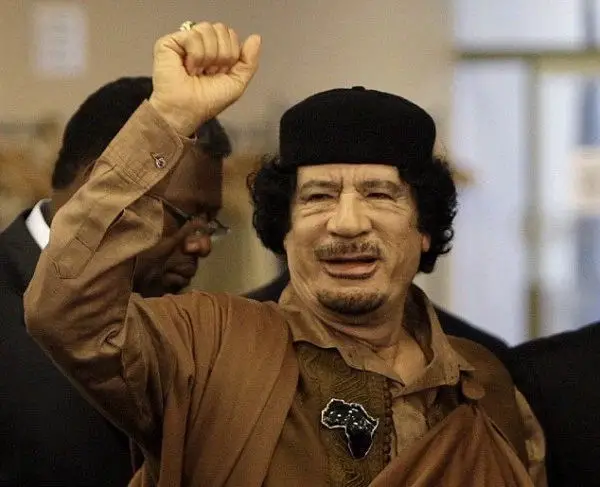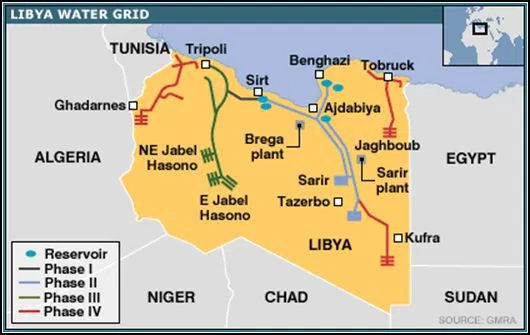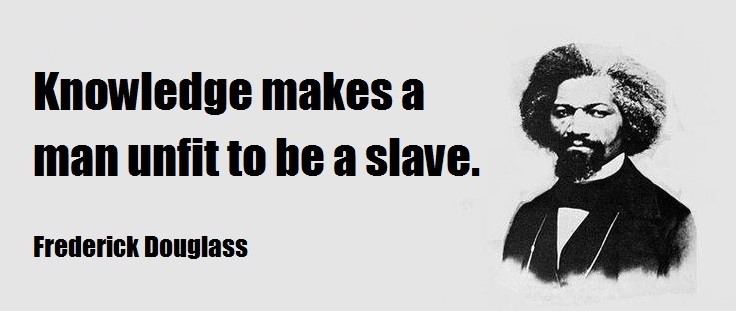By Tim Bryant
Guest writer for Wake Up World
“The darkest thing about Africa has always been our ignorance of it.” – George Kimble
Africa: A Forgotten Continent
What does the world really know about Africa? In the West, if you were to turn on the T.V., you would be hard pressed to find any news coverage regarding Africa other than starving children, political chaos, and exotic wild life. Despite being the second largest continent with a population of almost a billion people, Africa is usually relegated down to the bottom of the barrel when it comes to social and geopolitical importance on the international stage. What is perplexing though, is how Africa can be the most resource rich continent on the planet, yet also be the poorest continent on the planet. In reality, Africa should be prospering, and the envy of the rest of the world. Something isn’t adding up and its time people started to figure out why.
[pro_ad_display_adzone id=”110028″]
The narrative concocted by the media in the West is that Africa’s continued third world status is largely a product of its own creation, whether that be because of political corruption, ethnic conflict, poverty, or a complete lack of education. The narrative goes even deeper by implanting a belief system in people that Africa is this primitive continent with an unsophisticated culture compared to the rest of the world. This feeds into the idea that it is the moral duty of the philanthropic souls in the Western world to intervene and bring this better, more “civilized” culture to the people of Africa. It would be naïve at this point to think that the major powers of the world view Africa as any type of equal able to compete on the same playing field as them, both intellectually and culturally. It’s always the West, which is portrayed as the superior society in virtually all aspects of life.
Despite the misguided belief systems that persist, it’s time for all that to change. Often overlooked by the alternative media, Africa is very much an important thread of knowledge in the global conscious awakening happening all over the world. With the world becoming increasingly interconnected like never before, it’s vital, to both African success and global peace, that people of the world come to understand the root problems in Africa’s struggle to develop. What people will soon find out is that the problems of Africa are highly interrelated to the very same problems prevalent all over the world. In fact, most people of the world have the very same enemies preying upon them, making it all the more crucial that they awaken to this realization and come together as a united front. In many ways, changing Africa goes a long way in changing the entire world.
The Trans-Atlantic Slave Trade
“Songs we would never hear! Histories we would never know! Art we would never see! Because the Europeans had the capacity to destroy and didn’t have the moral restraint not to.” – Maulana Karenga
Africa has an extremely rich history that is incredibly diverse and goes back much longer than the implementation of the Trans-Atlantic Slave Trade, but for all intents and purposes the Atlantic Slave Trade might be the easiest place to start when aiming to understand Africa’s current state of affairs. Slavery has existed in many locations, forms, and time periods throughout the world, but the Trans-Atlantic Slave Trade, which occurred from around the middle of 15th century to the end of the 19th century, is one of the most notorious and well-known forms of slavery in modern history. Its effects are still lingering today, especially amongst those who were displaced from their native lands.
In all, it’s estimated that around 10-15 million Africans (likely higher if you count those who died in transit) were brought to the America’s by European ships during its operation, which includes North, Central, and South America. Though it was a clear factor, the purpose of the Atlantic Slave Trade was not solely racist hatred like many people think, but instead was economically motivated, centered around the massive demand for cheap labor needed to cultivate the crops of the newly settled lands in the America’s by European imperialists. This mostly revolved around the production of tobacco, sugar cane and cotton, which were all very labor-intensive processes at that time. Though the Spanish had enslaved many American natives when they colonized it, there was still a huge shortfall in labor; which inevitably turned them towards Africa to provide.
To pry the Africans away for the slave trade, the Europeans showed up to African shores offering manufactured goods, weapons, and rum to their kings/merchants in exchange for slaves. The leaders of Africa who sold these people into slavery viewed them not as their own people, but as criminals, debtors, or prisoners of war. Effectively, getting sold into slavery was punishment for the crimes one had committed. Due to the superiority of European goods and weapons, the African tribes that sold slaves often become enriched and more powerful compared to rival tribes that didn’t partake in it. Because of massive European demand, tribes competed against each other to provide slaves, inevitably leading to increased war and conflict, as tribes attacked each other in order to capture rival members and sell them off. This too only escalated, as African kingdoms soon became dependent upon European firearms to protect themselves against rival attacks, only furthering the need to sell more slaves in order to buy firearms for protection. A negative feedback loop had arisen, much to the dismay of Africa’s interests.
It is well documented the effects that the slave trade has had on those Africans who were shipped across sea as slaves. Many didn’t even make it to the Americas, often dying in transit, while those that did were treated as a sub-human species. Even into today, the slave trade has had huge psychological, physical, and economic effects on those families uprooted from their homes and forced into slavery. Not only can it be seen in the clear cycle of poverty that many minority communities find themselves in today, but it filled the world with a disgusting form of racism that had not yet existed to that magnitude before. Not only did blacks resent whites for claiming them as property and using them for forced labor, but whites developed this sense of moral superiority as if they were the superior race and everyone else needed them to lead civilization in the right direction. Racism on both sides traces many of its roots back to the slave trade.
It’s important to note that it was mostly élite interests that benefited from slavery, even amongst the whites, because the large majority of whites had no input in the development of the slave trade nor did they have enough money to ever own slaves. Whites were often just fed propaganda on slavery by the elites, and therefore became brainwashed victims of the ideological racism rather than developing this ideological hatred on their own. This is the same kind of programming we see today, so it shouldn’t be too surprising.
However, what is not often discussed is the effect the Trans-Atlantic Slave Trade had on Africa. One major consequence was that the African economies had become increasingly dependent on the slave trade, so when the Atlantic Slave Trade eventually ended in the late 19th century, African economies collapsed. Another major consequence was the deep internal conflicts that manifested as a result of the competition to provide Europeans with slaves. Families were broken up, neighboring tribes became fierce competitors and enemies, and leadership structures became untrustworthy and broken. Couple this with the fact that a large number of its male population had been displaced due to slavery, and you have a continent that is easy prey for a new form of slavery by the Europeans called Colonialism.
Colonization and the Scramble for Africa
“I contend that we are the first race in the world, and that the more of the world we inhabit the better it is for the human race…” – Cecil Rhodes
Right around the beginning of the 19th century, Europe was experiencing a boom in manufacturing, in what many people now refer to as the Industrial Revolution. Europe became the “workshop of the world,” as mass industrial production and international trade become possible like never before, effectively changing the entire global economic system in the process.
As a result, two things happened: there was a large demand for massive quantities of raw materials (copper, cotton, rubber, palm oil, tin) to power the revolution, and there was a surge in the demand for luxury goods (cocoa, diamonds, tea) in Europe, as the average income of the population rose extensively during this time. After years of experience inside of Africa, the Europeans not only knew that Africa was extremely resource rich, but they also had the strategic advantage of already controlling most of their seaports. There was tons of easy money to be made in Africa, supplemented with the fact that they had far more advanced weaponry than the Africans, making the conquest of Africa far easier and quicker than that of an equal battle. Though the Africans fought bravely and put up some resistance, there was little the Africans could do once the Europeans came in and took the offensive.
At the Berlin Conference of 1884-1885, the Act of Berlin was signed, which formally outlawed slavery in Europe and allowed free trade with Africa. To many on the international stage, it was seen as a sign of great progress, but unbeknownst to the Africans, there were more agreements going on under the table that would have grave consequences for Africa. At the very same conference, the European powers had quietly decided to split up the rights to African land amongst each other in order to allow further expansion of their empires and to solve inner quarrels brewing amongst the Europeans over influence in the region. Essentially, Great Britain, Spain, Germany, Italy, France, Belgium, and Portugal, laid claim to different parts of Africa, even though it was not their land to take. In many ways, they felt compelled to do this in order to appear preeminent on the international stage, as well as the primary objective of having enough cheap resources to enjoy the great economic wealth that came with industrialization. There were also social factors that came into play because the new capitalist industries couldn’t absorb everyone into this new system. Instead of altering the system, Europe looked to ship the “surplus population” to Africa and start settler colonies there. All in all, colonization was pure exploitation of Africa by European powers, especially economically.
Although Europeans were already working behind the scenes to colonize Africa, the agreement at the Berlin Conference had officially kicked off the scramble for Africa, effectively reshaping the continent like never before. In the span of just 20 years from the Act of Berlin, 90% of Africa was brought under European occupation, with most of the rest to follow. Though some people believe Ethiopia and Liberia to be the only countries in Africa never colonized, this doesn’t appear to be completely true because they were both occupied by a foreign country for some period of time. It just so happens that Liberia gained independence before the Scramble for Africa began and Ethiopia was briefly colonized by Italy after the scramble for Africa had ended.
According to Richard Dowden of the Royal African Society, “they carved up between six to ten thousand political units in Africa” into what equates to “geographical madness.” Essentially, they just drew lines on a map, many of which had not been there before. To the surprise of no one, this completely threw off the current way of life, creating an intertangled quagmire of different ethnic and cultural groups. This would only add to the chaos already brewing amongst the competing African tribes during the times of slavery. In fact, historically, Africa has always been highly diverse with thousand of different languages and ethnic groups within it. This is contrary to the commonly held belief that all Africans are the same. In the end, this division and animosity amongst the people of Africa only helped the Europeans keep the Africans divided and conquered, making rule over them far easier than if they were to unite.
The Europeans sold this, not only to the world, but themselves, by claiming they were bringing “civilization” and Christianity to the “primitive” people of Africa. They justified this further by building infrastructure throughout Africa as their way of modernizing it to fit the times. While this did help Africa to some degree, the reality is that it was accomplished mostly through forced labor and taxation for the primary benefit of European business routes. While some people, especially at the very top, were extremely racist and knew full well of the devastation they were inflicting upon Africa, countless Europeans actually thought they were humanitarians doing the right thing. Many truly thought they were helping Africa by colonizing them. Unfortunately, most average Europeans were simply blinded by both propaganda and this very discreet form of racism and moral superiority that had infiltrated the minds of the Europeans during the times of slavery. They truly believed they possessed this “better” way of life; and so they felt they were doing the right thing by bringing their “civilized” culture to those who had not yet achieved it.
It’s also important to note that the development of colonization and the primary beneficiaries of colonization were again the very same types of elite interests. Most normal people were just pawns in the game with little to say in the matter. They were just as conned, but were fortunate enough not to get the short end of the stick like the Africans did.
The French in particular, adopted heavy cultural assimilation of the Africans. They felt proud for doing so as well, viewing themselves highly for exposing Africans to their “sophisticated” culture. In many French colonies, Africans actually gained status the more French they become, effectively rewarding them for adopting the French way of life and punishing them for participating in their native customs. Others colonizers more brutal and focused solely on extraction of resources, like King Leopold of Belgium, who literally laid personal claim to the entire country of Congo, making an ungodly fortune in the process. He was a notoriously brutal dictator, known for chopping off people’s hands for not meeting their rubber quota for the day. It is estimated that the population halved during his twenty-year rule, which in the proper context is considered none other than genocide.
For the most part, the European powers would implement a classic divide and conquer strategy, where they would corrupt the leaders of local tribes and use them as middlemen to rule over the people. They went even further with this by controlling multiple leaders from different sides of the conflicts, effectively playing different ethnic groups off each other in order to manufacture chaos and keep them from uniting in any sort of rebellion against European power. One way they did this was by managing different territories and ethnic groups in different ways, with some tribes receiving better treatment than others. For example, in Western Nigeria the proxy leaders cooperated more with the West, therefore schools and infrastructure were built up, giving rise to a small political élite in the area. On the other hand, in northern Nigeria the local leaders didn’t take as kindly to colonial rule, resulting in a less developed and poorly educated region. These manufactured differences under colonialism in social status, ethnicity, and leadership ethics would come back and haunt Africa during what was supposed to be the crowning achievement of the continent; national independence of its countries.
The Call for African Independence
“We are going to demonstrate to the world, to the other nations, that we are prepared to lay our foundation – our own African personality.” – Kwame Nkrumah
World War II would have profound effects on the geopolitical structure of the world, including Africa, as not only were many Africans being required to fight in the militaries of the European powers, but unbeknownst to the Europeans, their exposure to international affairs would plant the seeds of national sovereignty that would inevitably spread across the entire continent of Africa. It wasn’t just African’s either; the idea of national sovereignty had spread to Asia, Latin America, and the Middle East, along with the civil rights movement that took hold inside the United States. The European’s mystique had finally started to fade in the minds of African people and the Europeans knew it. They attempted to buy back their loyalty by appointing African’s to positions of power, but the idea of independence had grown too strong for them to stop it. The Europeans also didn’t have the economic tools that were once at their disposal, as the war brought an economic depression to Europe, causing colonial costs to soar, while also devaluing the price of African goods. Many European countries were essentially bankrupt, giving them little ammunition to stop the continent of Africa from gaining independence.
Ghana was the first big domino to fall, claiming independence in 1957. Although there were eight countries to gain independence before Ghana, Ghana is often considered the major symbol of African independence because of its widely popular leader, Kwame Nkrumah, and because of its sub-Saharan status. Most of the countries that gained independence prior to Ghana were in the north, which is predominantly culturally Muslim (some consider these countries to be in the Middle East instead of Africa). Just three years later in 1960, often considered the Year of Africa, national independence movements exploded, with seventeen countries becoming sovereign nations. After that, fifteen more countries would declare independence in the 60’s, nine would declare independence in the 70’s, one would declare independence in 1980’s, and two in the 1990’s, but those were independence movements from within African countries that were already sovereign.
This wave of independence did not come without consequences, as the initial euphoria from gaining independence would quickly wear off due to the massive power vacuums that were left in most countries. There were an infinite number of unresolved political tensions between different ethnic and tribal divisions that had been strongly amplified under both the Atlantic slave trade and colonial rule. So when independence came about, the struggle to fill positions of power became a fierce competition. From 1962-1970, it was a very violent time in Africa, as unelected militaries coveted control of the vacant power vacuums, often to the dismay of nationalist thinkers who had led the country to independence in the first place. In the first 20 years since Ghana’s independence, there were 40 successful coups upon African governments. Many of Africa’s brightest thinkers/leaders were assassinated, as not only were tribes mad at each other, but many of the colonial powers still wanted to exercise power and control in the region.
Those African leaders that chose not to play ball with the West, were abruptly assassinated by covert intelligence operations. From 1961-1973 alone, there were six African opposition leaders taken out in Western-backed coups: Patrice Lumumba (Congo), Kwame Nkrumah (Ghana), Felix Moumie (Cameroon), Sylvanus Olympio (Togo), Mehdi Ben Barka (Morocco), Eduardo Mondlane (Mozambique), Amilcar Cabral (Guniea & Camp Verde). It became quite clear to those wanting to take power in Africa, that if you aren’t on board with the West’s agenda, then you are a prime target to be taken out. There is no doubt that this has weighed heavily on the psyche of Africans even up until the present day, much in the same way that the MLK and JFK assassinations had large effects on the political psyche of Americans.
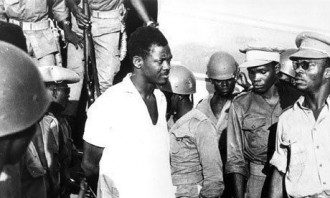
(Deposed Congo ex-premier Patrice Lumumba (centre) leaves a plane at Leopoldville airport, Dec. 2, 1960, under guard of Congolese soldiers loyal to Colonel Joseph Mobutu)
It was the inevitable dark side of ruling through proxies, as anyone who looks deeper can see that the West never really left Africa. Not only did they stick around, but new players would emerge in an attempt to capitalize on Africa’s resources. This was especially true of the US and Russia, as Africa was a prime target of influence for both countries in the heat of the cold war, resulting in proxy wars and multiple coups against each other. A new form of slavery was now emerging from the ashes of colonialism that is still ever-present today. Even less visible than the chains of overt slavery and colonialism, modern neocolonialism has become the new form of control for not only Africa, but is the control system of the entire world.
Neocolonialism and the Modern Age of Slavery
“Slavery was abolished 150 years ago, right? While this is true that slavery is illegal almost everywhere on Earth, the fact is there are more slaves today then there ever were…” – Robert Alan Silverstein
Once national independence took root, the West realized that it had to change its posture towards Africa. No longer could they rule Africa overtly by the fist as they had with slavery and colonialism, but instead had to strike deals and work behind the scenes in order to maintain their interests and keep power. What arose from this new strategy was a series of highly corrupt African leaders that came to power through the support of the western élite, greatly enriching both parties at the expense of the African people. In fact, many of these African dictators that rose to power were nothing but puppets that protected the western elite’s interests in exchange for extreme fortunes and unchallenged power, both politically and militarily. While there have been some successes, the majority of Africa still suffers from a cycle of corruption due to western influence of its leaders, effectively holding hostage the real independence of Africa. As Mayer Amschel Rothschild once said “Give me control of a nation’s money supply, and I care not who makes the laws.”
Before getting into the many ways that western powers influence and control Africa, it’s paramount to first understand that none of this is possible without the seeds of corruption. Corruption is what makes leaders, foreign or domestic, pillage a country of its wealth for the sole benefit of its own interests. Without this distortion in ethics, countries all over Africa could prosper in a variety of different social, governmental, and economic systems. Once we understand that corruption of the human mind is the foundational cause of humanity’s woes, we can then look at the various tools used by those in power to maintain dominance over both Africa and the entire world.
It’s important to note, that while Africa is corrupt, the whole world is corrupt. In fact, the seeds of corruption seem to trace back the West more than anything else.
Resource Control
One of the major tools used by those in power to control Africa is through domination of its natural resources. As stated earlier, Africa is extremely resource rich compared to the rest of the world. They have every sought after resource: gold, silver, cobalt, oil, natural gas, diamonds, uranium, copper, iron, rubber, manganese, salt, bauxite, as well as wood and tropical fruits. The Congo in particular has an enormous supply of an extremely rare mineral used in all types of electronics and military equipment called Coltan, which has plagued the country with civil war, all due to a fight for control over that particular resource.
The problem is that foreign multinationals are in bed with the African political élite, which means that the continents greatest wealth is being extracted for the sole interests of a small clique of domestic and foreign élite. If Africa has any chance of truly thriving, it must take the vast amounts of resource wealth it has and use it towards development of the continent and its people. This is especially important in the development of mineral refinement capabilities, another major problem holding Africa back. Raw materials are only the beginning of the manufacturing process. Most of the money from natural resources is not made by selling the raw materials themselves, but instead is made by turning them into manufactured goods and selling them on the market to consumers. Since Africa has not built up its mineral refinement infrastructure, they are forced to ship their raw materials, which are already dominated by foreign interests, to western countries where they are turned into manufactured goods for large profits.
For example, according to Global Research,
“A rough diamond mined in Africa costs about $40 per carat, and a diamond cut and polished in Europe increases to $400 per carat. That same stone fetches around $900 per carat when it reaches the consumer. Another example is Zimbabwe, which is known for producing the best quality tobacco in the world and last year it earned $650 million from the sale of raw tobacco. Industry experts illustrate how Zimbabwe could have earned $6.5 billion instead of $650 million if they had processed the crop into cigarettes, rather than exporting tobacco as a raw good. Finally, Nigeria is said to sell its crude oil for a measly $9 a barrel, only to then import refined gasoline, diesel and kerosene made from its own oil resources for hundreds of dollars per barrel.”
Essentially, Africa is losing out on massive amounts of money by not owning the resources, which in turn keeps them from developing the refinement capacity to turn the raw materials into finished products. Obviously, they will never develop fully under this model.
Debt
Another major tool used to keep Africa in a perpetual cycle of poverty is debt. This is mostly achieved through neoliberalization policies enacted on Africa through international institutions like the International Monetary Fund (IMF) and the World Bank. Due to corruption and international pressure put upon African leaders, massive international loans have been taken out, with the purpose of infrastructure development in African countries. This sounds all well and good, but the reality is that these are predatory loans that end up privatizing profits and socializing losses. Corporations receive massive contracts to build infrastructure, which usually benefits élite business interests and high-up government officials, while the public gets stuck with a debt it never benefited from and can never pay back. This forces countries to go into even more debt to pay off its existing debt, as well as incorporating austerity measures such as selling off its assets to private investors in order to service the debt. For Africa to be truly free, this is a cycle that must be broken.
This debt also plays a role in the inability of African governments to build any type of real infrastructure in the country. Their budgets are simply to overburdened by debt to spend any money on any massive infrastructure builds. This doesn’t even take into account all the money being lost because of foreign corporations that don’t pay taxes in Africa. Money laundering, anonymous bank accounts, fake foundations, tax havens, and trade mispricing are all common practices in Africa, which puts massive constraints on the operating budgets of African governments. The West tries to make up for this by providing foreign aid to Africa, but this is nothing but a Band-Aid on a bullet hole compared to the massive wound being opened by tax evasion, debt, resource exploitation, and currency manipulation.
Currency
Another powerful tool used against Africa is currency manipulation. Currently, Africa’s currency is worth next to nothing on the international market, which allows countries to buy African goods and services for pennies on the dollar and then sell them for profits outside of Africa. One of the main reasons this happened is because the West controls most of the global economic system. They set the exchange rates, run international trade through the petrodollar system, set the political agenda for international policy, and rig the system to prop up the West at the expense of the rest of the world.
Another major factor is that the World Bank and IMF control most African currencies, determine macro-economic policy, and set national budgets. African’s have essentially sold control of their country by accepting loans with terrible terms, which allows these outside institutions to manage their finances and enforce counter-growth policies such as privatization, austerity, and more debt-based loans.
Finally, the fundamentals in African economies are just weak in general. Whether it’s too much debt, lack of manufactured goods, poor money flow due to inequality, or foreign capital sucking out its wealth, Africa has weak economies that affect the value of its currency. This is especially true of wealth inequality, which effectively filters money to the top while sucking it out of the economy, leaving little actual money to flow throughout the majority of the population. In the end, western elites control the African currency, which allows it to exploit Africa for next to nothing, making real development impossible to obtain.
Military and Intelligence
The last major tool the West is using to control Africa is their use of military and intelligence apparatus. With Africa being so resource rich and underdeveloped, there is a new scramble by countries for influence and control over the flow of resources coming out of it. Everyone wants a piece of the pie, especially China and the West (U.S. and Europe). China in particular has become a massive player in African development, as they are not only the largest traders with Africa, but they are heavily involved with infrastructure projects in the country. This is seen as a major threat to western interests, given they need resources and already have business structures built up in the region. As a result, a new war on terror has been created in Africa, giving the West (Mainly the U.S.) a reason to go in and “protect them.”
Created in 2007, The United States African Command (AFRICOM) is responsible for the U.S. military operations and military relations with the 53 nations of Africa. Their stated mission reads as follows:
“U.S. Africa Command, with partners, disrupts and neutralizes transnational threats, protects U.S. personnel and facilities, prevents and mitigates conflict, and builds African partner defense capability and capacity in order to promote regional security, stability and prosperity.”
Military officials also claim that operations in Africa are minuscule and temporary, with only one admitted base in the small country of Djibouti. However, as history would tell us, that never seems to be what is actually happening at all. The proof is in the details as the map below shows how the U.S. is creating U.S. military outposts, construction, security cooperation, and deployments in Africa. Details on the subject are very scant and hidden, as U.S. Africa Command recognizes 54 countries on the continent, but refuses to say in which ones (or even in how many) it now conducts operations. The report by TomDispatch claims that the U.S. is involved in no fewer than 49 of the 54 African countries.
Surprisingly, since the start of AFRICOM, instability in Africa has actually increased. From the ongoing war in Somalia, to the break-up of the Republic of Sudan and the subsequent civil war in the newly created Republic of South Sudan, to the war against so-called Islamic extremists in Nigeria, Niger, Mali, Cameroon and Chad, these developments have fueled Washington’s militarism on the continent. In fact, new Islamic-based terrorist groups have sprouted up that were seemingly non-existent before, such as Boko Horam, Al-Shabab, and the Islamic State. The question is: Why is all this happening now that the US in involved?
The answer seems to be that the West has created a list of new boogeymen to inflict terror on the region, giving the West a reason to go in militarily. We already know the CIA created, funded, armed, and trained al-Qaeda and ISIS in order to use as a foreign mercenary army to destabilize the Middle East and make it ripe for western intervention, so what’s to say that the CIA haven’t created new groups like Boko Haram and Al-Shabab in order to create new justification to intervene in Africa.
In fact, it seem this is exactly what’s going on, as the term “blowforward” has been coined by Nick Turse to describe this creation of chaos to promote intervention. Does anyone actually think that these small terrorist groups can rise up out of poverty to obtain advanced weaponry and challenge whole governments without some major financial and intelligence backing? It makes a lot more sense that this is a new version of the military industrial complex being used for profit and control of the world. In fact, it’s not even new, as the West has been arming and funding rebel groups for their political interests for a long time.
Not only are they building up enemies to fight, but they’re providing military aid and support to those rulers who “play ball.” This allows the leaders of these countries to stomp out any form of resistance from the people, making sure the current power system stays in place. The West also protects them by offering political cover to avoid international sanctions, as well as protect them militarily by using a countless number of drone strikes. These drones are also being used as a way to gather intelligence and spy on the continent, all of which play right in the hands of the western élite.
While there are many problems with Africa, and the mountain to change is tall, all hope should not be lost. In fact, solutions are not as complicated as many might think; they just require a massive change in the global system that will be hard for those at the top to swallow, and hard for those at the bottom to rise up and defeat their resistance to that change. Let’s finally discuss some tangible solutions that turn Africa into the prospering continent it should be.
Solving the Problem
“Africa is still being colonized economically. I think it will take the next generation to wakeup to understand that this is actually bigger then the Atlantic Slave Trade.” – David Boboye
If you were to look at the mainstream media, it would appear that Africa is doing very well. They are considered the fastest growing continent in the world, average incomes have gone up slightly, and the health of the population as risen too. This sounds great and certain things are very positive regarding African development, but the underlining reality is that they are being setup to play a central role in the world economic machine, which already has rulers. The problem is that most of their growth is fueled by debt and natural resource/infrastructure sell-offs, which only really benefit a few, while keeping the majority of the population in a cycle of poverty. While their GDP rises thanks to the skyrocketing profits of the élite class, the real economy of the population doesn’t seem to be growing at any respectable rate compared to the wealth abundance of the continent.
According to Harvard Scholar Garikai Chengu of Global Research,
“True African liberation involves three stages: first, the redistribution of land and natural resources from the white minority to the black majority; second, the rejection of the IMF and World Bank’s counter-developmental neoliberal policies; and third, development of mineral refinement capacity”
Unfortunately for Africa, most of these measures have not truly taken root in the various countries.
Redistribution of land amongst the people is the first step. Right now, most of the land is owned either by a few highly connected élite citizens, or by foreign investors. This means that all the resource profits it owns are siphoned off to the top or out of the country. African countries simply need more money staying in the local economies in order for it constantly change hands and make everyone prosperous. Having the resources legally owned by the people promotes the development of small businesses, which keeps money flowing into the country as well as providing revenue for the government to build up its infrastructure. It also gives regular people political powers because owning your own business and making money naturally gives you more political pull in the community, as opposed to foreign elites owning everything.
After redistribution of its wealth, the country must pay off its debt and reject any new loans offered to them by global predatory banks like the IMF and World Bank. These loans are not being used to the benefit of the people, but instead are helping the current power structure to keep control of the country. By paying off its debt, it will open up tons of money for real development, as well as help its currency gain a proper exchange rate. More than anything, if Africa can break away from its relationship with predatory foreign investment, it can finally begin to control its own currency, national budget, and macroeconomic approach to trade. The other important part is creating a new infrastructure bank, which will allow countries to build up its infrastructure on interest-free loans and to the benefit of its people.
Finally, the last stage of African development is the build-up of its mineral refinement capacities. Africa can do a lot in the first two stages, but it will never reach its potential unless it takes full advantage of its vast array of natural resources. It cannot afford to simply sell off its raw material and expect to grow. It has to own its own materials and turn them into finished goods so they can be sold for much higher returns on the international market. They must change their approach to resource and infrastructure development by beginning to require any company looking to do business in Africa to refine its resources in Africa and build up its infrastructure to the financial benefit of the people. This will create tons of jobs, which benefits the economy as a whole. This will also require advancement in education because the only way to keep up with the current technology is by having a highly educated population.
Libya Takes a Stand
While this sounds like a tall task to ask from a small African nation, the feat has actually happened before, much to the dismay of the West. Despite the constant bombardment of propaganda by the media, Libyan leader Muammar Gaddafi was well on his way to not only making Libya prosperous, but freeing the entire African continent. In 1967 when Gaddafi came to power, Libya was one of the poorest countries in all of Africa. However, by the time he was assassinated by the West in 2011, Libya had the highest GDP and life expectancy on the continent. In fact, fewer people lived below the poverty line than in the Netherlands.
Gaddafi practiced the redistribution stage of liberation by nationalizing oil wealth to sustain progressive social welfare programs for all Libyans. Money from oil proceeds was deposited directly into every Libyan citizen’s bank account. Under Gaddafi’s rule, Libyans enjoyed not only free healthcare and free education, but also free electricity and interest-free loans.
His vision was bigger than Libya, as he had embarked on a continental mineral program that would change the balance of power between Africa and the West. He planned to give interest free loans to any African country willing to embark on this transformation process. He also managed to pay off all external debt and had reserves of around $150 billion, which he planned to use as the seed money for the creation of three African banks: A Central African Bank, an African Bank Of Investment, and an African Monetary Fund. The plan was bold, hoping to start an African currency called the African dinar, which would be backed up by gold and its resource wealth. The plan was to unite Africa around the currency and trade its resources in this new currency, instead of foreign currencies they cannot control.
He also embarked on a plan to build Africa its first satellites, which would cut out the western companies and allow Africa to own its own telecommunication systems. He also built the world’s largest irrigation project, known as the Great Man-Made River project, to make water readily available throughout the desert country.
Obviously, this didn’t sit too well with the leaders of the West, which is why he was taken out in 2011. The media will tell you he was a brutal dictator and needed to go in order for democracy to rise, but the truth is that Gaddafi was a major threat the petrodollar system of global economics as well as the continued exploitation of Africa. Unfortunately, Libya was utterly destroyed by the West when the US was invaded in 2011, setting Libya back several generations. Libya is now a failed, chaotic state all thanks to “American freedom and democracy.”
Education
The sad part of Libya’s destruction is the fact that no one knows, cares, or understands why any of this actually happened. People are so caught up in their daily lives that they pay no attention to the hidden truths about the world. They only know the surface level propaganda that is fed to them by the media. People think charity is going to solve Africa’s problems, but in reality this is like putting a patch on a system that is still severely broken. Therefore, education of not only Africans, but the entire world, is the one single greatest solution to the ongoing African crisis. Knowledge as to what is really going on in the world is the only way the root cause can possibly be stamped out. It is the whole global system that is the problem, which in order to solve will require a massive re-education of the world population.
This isn’t a solely African problem; this is a global problem because, as noted in the article, the West is heavily involved in African issues. The world is far too interconnected these days for just one population to understand the dynamics of it all. It will require large factions of people all over the world to actively research past the surface layer of reality if they are to see the real root causes stemming beneath the surface. All of our information about the world is filtered, so don’t expect the truth to be told to you. It has to be actively searched for, and until more people get informed as to what’s really going on, nothing with change in Africa, let alone the world.
Conclusion
“Slavery can only be abolished by raising the character of the people who compose the nation; and that can be done only by showing them a higher one.” – Maria Weston Chapman
In a just world, Africa would be prospering, with plenty to provide for the entire continent. Yet in reality, they can’t escape a world economic system that is rigged. While this seems confined to Africa, the truth is that this same struggle between elites and everyone else has been seen throughout history all over the world. The only way to solve Africa’s problems is for the world to fix the current global system we all operate under. If we are just being honest, most of this corruption is stemming from inside western government, banks, and corporations, so that might be a good place to start.
People really have to begin to look in the mirror and think about what kind of planet they want to see. It really comes down to a combination of knowledge and ethics, and the hope is that people take in the proper knowledge and use it towards the ethic of love. The hope is that people take in the proper knowledge and use it towards the ethic of love. The problems and solutions are not rocket science, but solving them will require sacrifice and participation of people all over the world. No longer can people sit in their comfortable bubbles in the West and pretend their luxuries are not coming at the expense of third world countries like those in Africa. No loner can those in the West blame Africa for its problems or intervene as if they must save the day. The West needs to step aside and let Africa create its own identity and build itself. Finally, no longer can Africans allow their leaders to be bought off by this nasty influence of corruption that plagues the Earth. Everyone plays a part in the problem and everyone will play a part in the solution. We all affect each other in some way or another, so if we are to make Africa and the rest of world prosperous, we have to use knowledge in just and positive ways. This is real change and those are the hidden truths of Africa.
Article sources:
Slave Trade:
- https://www.youtube.com/watch?v=3NXC4Q_4JVg
- https://www.youtube.com/watch?v=dB706FlY4Pk
- http://www.understandingslavery.com/index.php?option=com_content&view=article&id=369&Itemid=145
Colonialism And Scramble For Africa:
- https://www.youtube.com/watch?v=CgzSnZidGuU
- https://www.youtube.com/watch?v=Pw12KGSj53k
- https://www.quora.com/Which-countries-in-Africa-were-never-colonized
- http://exhibitions.nypl.org/africanaage/essay-colonization-of-africa.html
African Leader Assassinations:
Neocolonialism:
- http://www.globalresearch.ca/africas-second-liberation-against-todays-neo-colonialism/5451647
- http://www.globalresearch.ca/us-imperialism-and-americas-new-cold-war-against-africa/5471560
- https://www.youtube.com/watch?v=N_kgiv9cUiE
- http://www.brookings.edu/blogs/africa-in-focus/posts/2015/02/13-african-sovereign-bonds-sy
Foreign Aid:
AFRICOM:
- https://www.youtube.com/watch?v=AFEWQugOm3E
- http://www.globalresearch.ca/tomorrows-battlefield-u-s-proxy-wars-and-secret-ops-in-africa/5447468
- http://www.ronpaulinstitute.org/archives/featured-articles/2013/september/29/africom-the-us-pivot-to-africa.aspx
- https://en.wikipedia.org/wiki/United_States_Africa_Command\
- http://www.nytimes.com/2015/12/11/us/politics/pentagon-seeks-string-of-overseas-bases-to-contain-isis.html?utm_source=Sailthru&utm_medium=email&utm_campaign=New%20Campaign&utm_term=%2ASituation%20Report&_r=1
- https://www.youtube.com/watch?v=iHxF7REKT7k
- http://www.africom.mil/about-the-command
New Scramble For Africa:
Libya:
- https://www.youtube.com/watch?v=LooTuut-jDc
- https://www.youtube.com/watch?v=Hot91IuJ1nI
- https://www.youtube.com/watch?v=Ai4dNN_bPBc
- https://www.youtube.com/watch?v=HT8GWTBx8Vg
- https://www.youtube.com/watch?v=prWId7_CoBk
- https://www.youtube.com/watch?v=pTdh4WsF8IM
- https://www.youtube.com/watch?v=YKwx5u7BEdA
Congo:
- http://mediaroots.org/congos-resource-curse-us-backed-atrocities-refugee-industrial-complex/
- https://www.youtube.com/watch?v=UY9cdVtwUhQ
Misconceptions About Africa:
Previous articles by Tim Bryant:
- Understanding the New World Order – The Who, What, How and Why
- America – The Great Illusion
- It’s Time to Pop Your Conspiracy Theory Cherry
About the author:
An avid free-thinker, Tim has set out on a mission in search of the truth in whatever form it may come. Ever since his awakening several years ago, his passion for knowledge and justice has led him on a journey into deep research, cultural travel, and complete expansion of the mind. Tim feels as if the information freely flowing into the hands of the public, due to the dawn of the Internet, cannot be stopped at this point, so he has made it his goal to help facilitate and breakdown this complex stream of information, so that others can accelerate their own awakening and be part of the inevitable change happening in society.
You can connect with Tim at:
- Website: new.thelastamericanvagabond.com
- Facebook: facebook.com/TheLastAmericanVagabond
[pro_ad_display_adzone id=”110027″]

